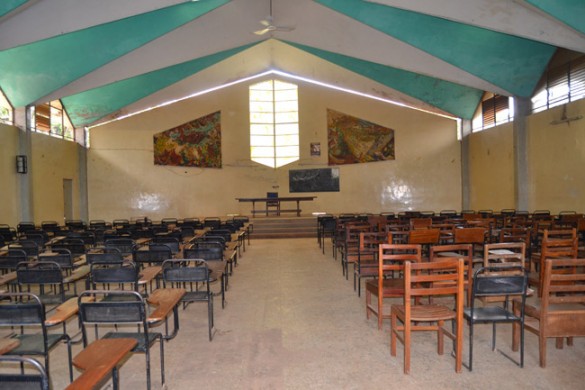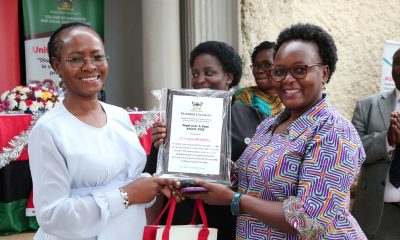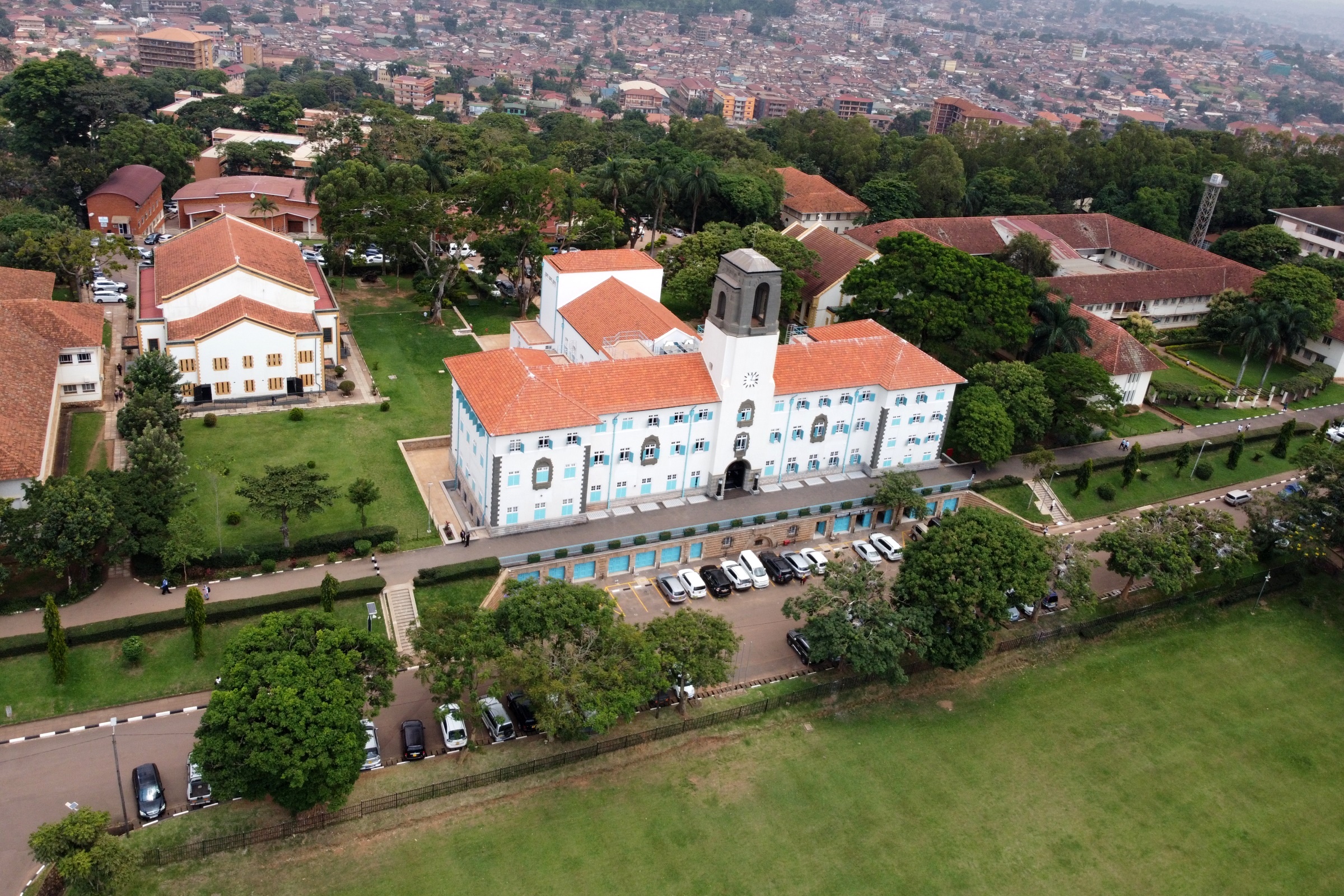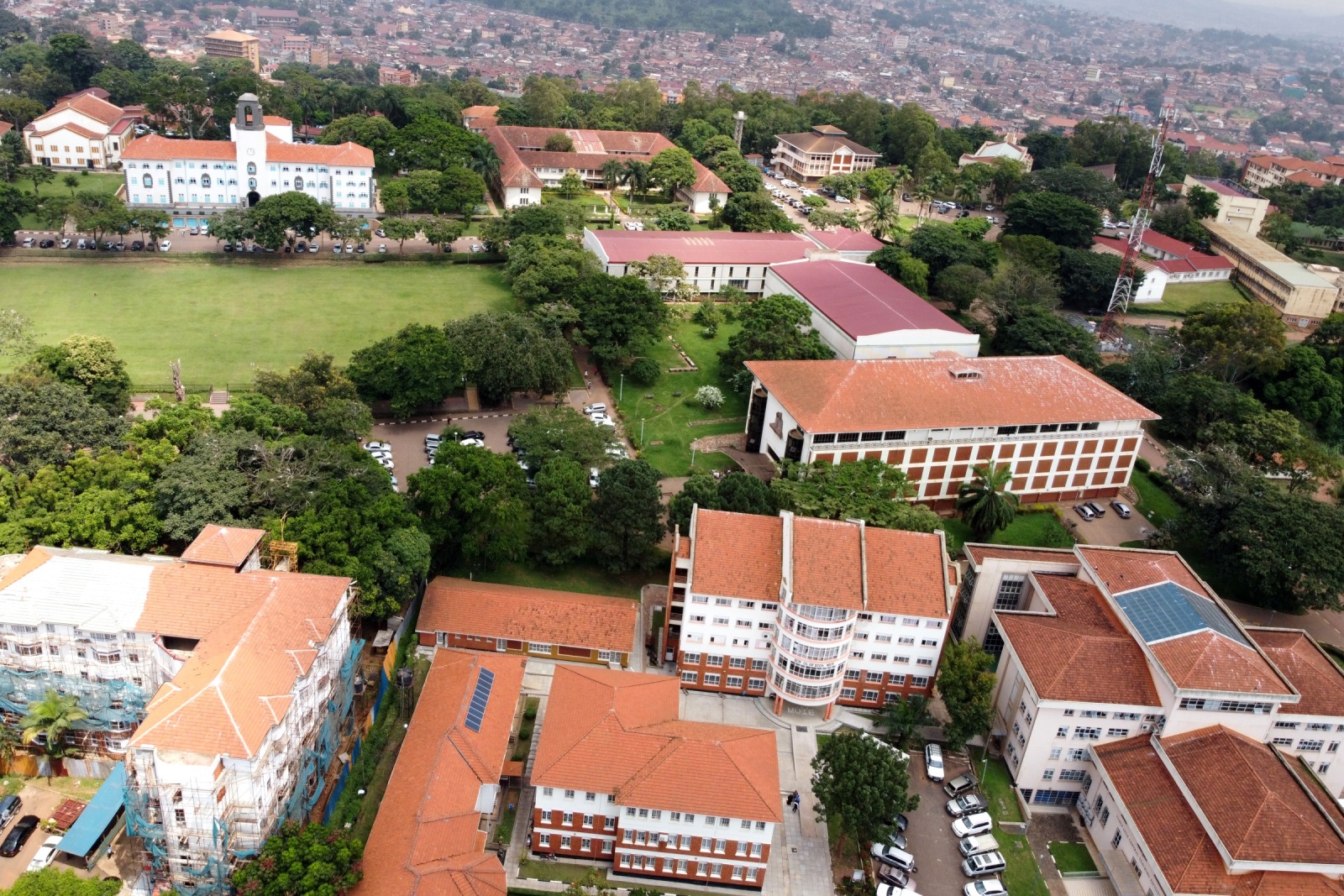Makerere University is governed by the Universities and Other Tertiary Institutions Act, Cap 262. The University is seeking applications from suitably qualified applicants for the position of Second Deputy Vice-Chancellor. The Second Deputy Vice Chancellor holds a pivotal role in financial governance, institutional planning, and administrative leadership.
1. POSITION: SECOND DEPUTY VICE-CHANCELLOR
2. SALARY SCALE: PU2
3: DUTY STATION: MAKERERE UNIVERSITY
4. ROLE
The Second Deputy Vice-Chancellor will report to the Vice–Chancellor and shall:
- Assist the Vice Chancellor in performance of his or her functions and in that regard shall oversee the finances and administration of the University;
- Be responsible for the Planning and Development of the University and,
- Perform such other functions that may be delegated to him or her by the Vice Chancellor or assigned by the University Council.
5. PURPOSE OF THE JOB
To provide strategic leadership and ensure efficient and sound financial, human and fiscal resources management in the University.
6. DUTIES AND RESPONSIBILITIES
- Provide leadership in Strategic planning and governance, leadership and administrative experience, Human resource and performance Management, Stakeholder engagement and collaboration.
- Provide leadership in preparation and implementation of the University’s recurrent and capital budgets.
- Monitor the development and implementation of the University’s accounting procedures, manuals and other documents relating to financial control and Management as per approved financial regulations.
- Oversee income and expenditure of all income generating units of the University.
- Coordinate the production of the University-wide Financial Reports by Colleges and Units.
- Management of human resources in the University.
- Oversee the management of University Estates and Assets.
7. CANDIDATE SPECIFICATION
- Hold a PhD or any other academic doctorate.
- Be at the rank of associate or full professor level in an institution whose academic ranking is comparable with that of Makerere University as accepted by Senate.
- Be a Ugandan citizen within the age bracket of 40 to 65 years at the time of application.
7.1 Academic Qualifications
- Earned a Ph.D. or equivalent doctorate should be acceptable by Senate.
- At least five years of financial or administrative leadership experience at the level of school dean/director or higher in a higher education institution, public service, or corporate institutions.
- Supervised at least ten (10) postgraduate students (Master’s and Ph.D.) to completion. At least three of the students must be at the PhD level.
7.2 Strategic Planning and Governance
- Experience in leading large administrative teams at the level of dean or higher, demonstrating efficiency and productivity.
- Proven record in developing and executing strategic plans, aligning financial and administrative objectives with institutional goals.
- Evidence of developing and implementing financial policies that have improved financial efficiency, transparency, and risk management.
- Evidence of implementing organisational restructuring or process improvements to ensure operational efficiency.
- Ability to develop and implement institutional policies, ensuring compliance with national higher education and financial regulations.
7.3 Leadership & Administrative Experience
- Minimum 5 years of senior academic leadership in a recognized institution comparable with that of Makerere University, as accepted by Senate.
- Demonstrated experience in managing budgets exceeding UGX 500,000,000=, ensuring financial sustainability and accountability.
- Proven ability to mobilize resources, secure grants, and attract external funding to support institutional growth.
- Experience in conducting financial forecasting, cost control measures, and investment strategies to optimize institutional resources.
- Track record of leading financial audits and compliance assessments in alignment with national and international financial regulations.
- Experience in handling procurement, asset management, and infrastructure development, ensuring transparency and value for money.
7.4 Human Resource and Performance Management
- Track record of leading workforce planning, recruitment, and talent development strategies, ensuring a high-performance institutional culture.
- Experience in implementing performance-based appraisal systems, leading to improved staff efficiency and accountability.
- Proven ability to foster industrial harmony, resolving labour disputes and improving employer-employee relations.
7.5 Infrastructure Development and Resource Optimization
- Experience in overseeing capital development projects, ensuring timely delivery and cost efficiency.
- Track record of overseeing the maintenance and expansion of university facilities, enhancing institutional infrastructure.
- Proven ability to negotiate and manage contracts for outsourced services, ensuring cost-effectiveness and quality standards.
7.6 Digital Transformation and ICT Integration
- Experience in integrating ICT solutions in financial and administrative operations, improving service delivery and efficiency.
- Evidence steering the automation of financial, procurement, and HR systems, reducing paperwork and improving real-time decision making.
- Proven ability to implement cybersecurity measures that safeguard institutional financial and administrative data.
7.7 Stakeholder Engagement & Collaboration
- Demonstrated experience in building partnerships with government agencies, donors, private sector investors, and international organizations to enhance institutional funding.
- Proven ability to engage faculty, students, and staff in financial decision-making, ensuring transparency and inclusivity.
- Experience in negotiating contracts, partnerships, and collaborations that have led to financial and administrative growth.
7.8 Personal Attributes
- High level of integrity, transparency, and ethical leadership, with a record of financial prudence.
- Strong analytical, problem-solving, and decision-making skills, backed by evidence of successfully managing complex financial and administrative challenges.
- Excellent communication, negotiation, and interpersonal skills, ensuring effective stakeholder engagement.
- A visionary leader with the ability to drive financial sustainability. administrative efficiency, and institutional growth.
8. REMUNERATION
An attractive remuneration package that is in accordance with Makerere University terms and conditions of service.
9. TENURE
The Second Deputy Vice Chancellor shall hold office for a period of five years and shall be eligible for re-appointment for one more term.
10. METHOD OF APPLICATION
Interested applicants are invited to submit their application letters. The following documents shall comprise a complete application:
- A signed letter of application;
- A vision statement;
- Curriculum Vitae with contact details signed and dated by the applicant;
- Copies of required minimum number of publications;
- Certified copies of academic transcripts and certificates;
- Three (3) letters of recommendation;
- Copies of letters of appointment to leadership positions at the level of Dean of a School in a national accredited university or other academic institution;
- A copy of the applicant’s National Identity Card or passport;
- A copy of the last clearance from the Inspector General of Government or other equivalent national body;
- Referees should be advised to send confidential reference letters, addressed to the Chairperson Search Committee for the Position of Second Deputy Vice Chancellor and delivered directly to the address below by 5:00 pm on Friday 13th February, 2026;
- The references should cover the following areas: the applicant’s academic credential, experience, leadership, managerial and administrative skills and personal integrity.
Both Hardcopy and Electronic (Email) applications shall be accepted.
- Hardcopy applications: Both confidential letters and sealed applications marked “CONFIDENTIAL: POSITION OF SECOND DEPUTY VICE CHANCELLOR” should be addressed to:
SECRETARY SEARCH COMMITTEE
THE ACADEMIC REGISTRAR
MAKERERE UNIVERSITY
6TH Floor, ROOM 602, SENATE BUILDING
P.O.BOX 7062, KAMPALA, UGANDA
- Electronic media (e-mail) applications should have all the above documents scanned and emailed to search.dvcfa@mak.ac.ug by 5.00 pm East African Standard Time on Friday 13th February, 2026.
Please note that:
- Incomplete applications or applications received after the closing date and time will not be considered.
- Only shortlisted applicants shall be contacted.
- Applicants who responded to the advertisements published on 31st December 2025 (The New Vision) and 2nd January 2026 (The Daily Monitor) do not need to re-apply.
For more Information and inquiries:
Visit our website https://mak.ac.ug/search-for-dvcs OR email us on search.dvcfa@mak.ac.ug OR Call Telephone number: +256-414-532634 during working hours (between 8:00 am to 5:00 pm Monday to Friday).
MAKERERE UNIVERSITY IS AN EQUAL OPPORTUNITY EMPLOYER
Prof. Mukadasi Buyinza
ACADEMIC REGISTRAR


 General1 week ago
General1 week ago
 General6 days ago
General6 days ago
 General1 week ago
General1 week ago
 General2 weeks ago
General2 weeks ago
 Humanities & Social Sciences2 weeks ago
Humanities & Social Sciences2 weeks ago


